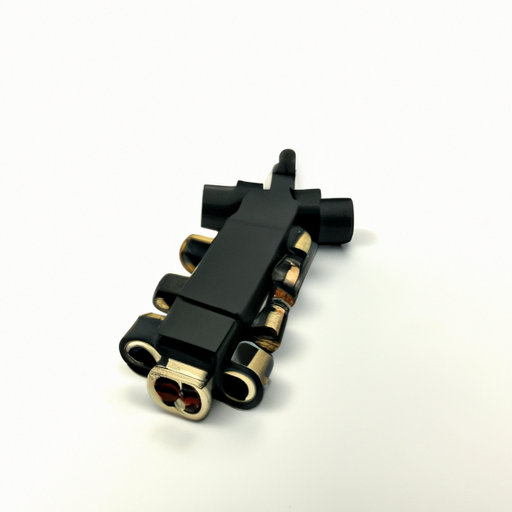S6008L Resistors highlighting the core functional technology articles and application development cases of Resistors that are effective.
S6008L Resistors: Core Functional Technologies and Application Development Cases
The S6008L resistors, like other resistors, are fundamental components in electronic circuits, serving various critical functions that enhance the performance and reliability of electronic devices. Below, we delve into the core functional technologies of resistors and highlight specific application development cases that demonstrate their effectiveness.
Core Functional Technologies of Resistors
1. **Current Limiting**:
- Resistors are essential for controlling the flow of current in circuits. By limiting current, they protect sensitive components from damage due to overcurrent conditions. For instance, in LED circuits, resistors ensure that the current remains within safe limits, preventing LED burnout.
2. **Voltage Division**:
- Resistors can be configured in a voltage divider arrangement to produce a desired output voltage from a higher input voltage. This technique is widely used in sensor applications, where specific voltage levels are required for accurate readings.
3. **Pull-Up and Pull-Down Resistors**:
- In digital electronics, pull-up and pull-down resistors are crucial for defining the logic levels of inputs to microcontrollers and logic gates. They ensure that inputs are at a known state (high or low) when not actively driven by other components.
4. **Biasing**:
- Resistors are used to set the operating points of transistors and other active devices. Proper biasing is essential for ensuring that these components operate efficiently and within their linear range, which is critical in amplifier circuits.
5. **Feedback and Stability**:
- In operational amplifier (op-amp) circuits, resistors are integral to feedback loops, which stabilize gain and enhance linearity. This is vital in applications requiring precise signal amplification, such as audio processing.
6. **Thermal Management**:
- Resistors dissipate heat during operation, and their thermal characteristics are crucial in high-power applications. The S6008L, with its specific thermal ratings, can be selected for applications where heat dissipation is a concern, ensuring reliability and longevity.
Application Development Cases
1. **Consumer Electronics**:
- In smartphones and tablets, resistors are used in power management circuits to optimize battery life and protect components from voltage spikes. For example, they help regulate the charging circuits, ensuring safe operation.
2. **Automotive Applications**:
- Resistors play a vital role in automotive electronics, controlling sensors and managing power distribution in electronic control units (ECUs). They ensure reliable operation of critical systems such as anti-lock braking systems (ABS) and engine control modules.
3. **Industrial Automation**:
- In industrial control systems, resistors are used in signal conditioning circuits to interface sensors with microcontrollers. This ensures accurate readings and reliable operation in environments with high electromagnetic interference.
4. **Medical Devices**:
- In medical instrumentation, resistors are crucial for signal processing in devices like ECG machines and blood pressure monitors. They help ensure that sensor outputs are accurately translated into meaningful data for diagnosis.
5. **Telecommunications**:
- Resistors are employed in RF circuits for impedance matching and signal attenuation, which are essential for maintaining signal integrity in communication systems. This is particularly important in high-frequency applications where signal loss can significantly impact performance.
6. **Renewable Energy Systems**:
- In solar inverters and battery management systems, resistors are used for voltage sensing and current limiting. They help ensure safe and efficient operation, protecting against overvoltage and overcurrent conditions in renewable energy applications.
Conclusion
The S6008L resistors, like their counterparts, are indispensable in a multitude of applications across various industries. Their ability to control current, divide voltages, and provide stability makes them essential components in modern electronic design. By understanding their core functionalities and application cases, engineers and developers can effectively leverage the capabilities of resistors in their projects, ensuring optimal performance and reliability in their electronic systems.





